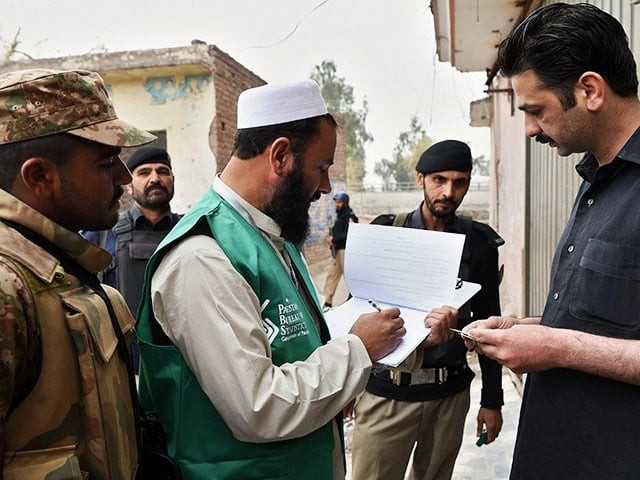
At least 16 distinct languages are spoken by different communities in Sindh showing a rich tapestry of languages in the province, according to the 2023 population census data released by the Federal Bureau of Statistics (FBS) last week. Sindhi and Urdu are the most widely spoken languages in the province, followed by Pashto and Punjabi.
The census data further reveal that that Sindhi is the predominant language in the province, with 33.462 million speakers, closely followed by Urdu with 12.409 million speakers. Pashto ranks third with 2.955 million speakers, and Punjabi follows with 2.265 million speakers.
Moreover, there are 1.208 million Balochi speakers, 913,418 Saraiki speakers, 830,581 Hindko speakers, 265,769 Brahui speakers, 53,249 Kashmiri speakers, 57,059 Mewati speakers, 22,273 Shina speakers, 27,193 Balti speakers, 14,885 Kohistani speakers, 777 Kailashi speakers, and 1.151 million speakers of other languages across the province.
Among the five divisions of Sindh, Karachi stands out as the most linguistically diverse. The seven districts of the teeming metropolitan city collectively host 10.315 million Urdu speakers, 2.752 million Pashto speakers, 2.264 million Sindhi speakers, 1.645 million Punjabi speakers, 808,352 Balochi speakers, 753,903 Saraiki speakers, 653,727 Hindko speakers, 75,993 Brahui speakers, 30,375 Mewati speakers, 26,906 Balti speakers, 14,073 Kohistani speakers, 21,860 Shina speakers, 614 Kailashi speakers, and 943,165 speakers of other languages.
These figures highlight Karachi's role as a melting pot of linguistic and ethnic diversity within Sindh, reflecting its vibrant cultural mosaic.
Sindhi nationalists reject census data
The Sindh Taraqipasand Party (STP) has rejected the data of the recently published results of the 2023 Digital Census regarding the Sindhi speaking population.
“We do not accept the published data of the current digital census,” said STP chairman Dr Qadir Magsi, in response to the released figures of the census.
He stated the headcount, controversial since its inception, did not reflect the true population figures. The statistics, the Sindhi nationalist leader claimed, were based on falsehood and showed a reduced number of Sindhi speaking people.
He said that in the previous census, the number of Sindhi speakers in Sindh was 61.60 percent. It is surprising that in the digital census, this number has been reduced to 60.60 per cent. Actually, Magsi said, the number of Sindhi speaking people in Sindh is more than 75%, which has been shown less in every census.
He said that from the very first day, we had said that under the name of digital census, Sindh is being deceived and false statistics will be presented. He said that today, when the figures have come out, this has been proven correct.
STP’s chief, Dr. Qadir Magsi, further stated that during the digital census, the staff was neither properly trained nor properly planned, which is why the census teams could not reach the remote areas of Sindh. On the other hand, due to various technical issues, accurate data was not collected. Therefore, we reject this census and the false numbers manipulated according to the rulers’ will.
2023 headcount termed ‘digital terrorism against Sindh’
A conference of Awami Tehreek, a Sindhi progressive-nationalist party, has dubbed the digital census 2023 in Pakistan as digital terrorism against Sindh. The speakers at the conference, which was held in Larkana district on Sunday, rejected the census and its statistics.
“The digital census has deliberately understated the Sindhi population in Sindh,” said AT’s President Lal Jarwar. “We consider it as a form of digital terrorism.”
Noor Ahmed Katiyar, General Secretary, said Sindh will never accept a census which attempted to turn their population into a minority in their own motherland. Dr Zulfiqar Rahoojo believed that Sindh is currently passing through a critical situation. He called for unity among the people to protect their interests and to prevent their exploitation.
The participants also called for rolling back the Green Pakistan project, expressing concerns that under the garb of the project the land of small farmers in Sindh will be handed away to corporations from outside the province. They also rejected the proposals and projects for construction of new dams or canals on the Indus River.
Prof Haq Nawaz maintained that land is being seized from the native people in the name of economic development. He said the green initiative is a conspiracy to grab land.



1721628943-0/photo-collage-png-(6)1721628943-0-270x192.webp)


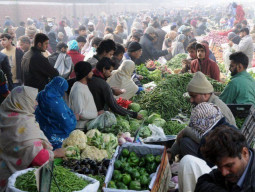

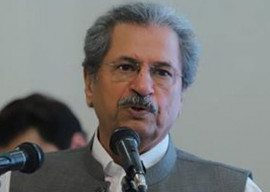

1721576508-0/drake-(2)1721576508-0-270x192.webp)

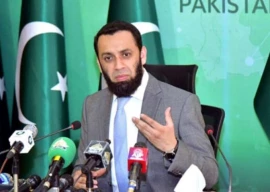





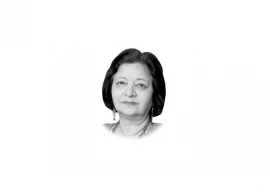
COMMENTS
Comments are moderated and generally will be posted if they are on-topic and not abusive.
For more information, please see our Comments FAQ